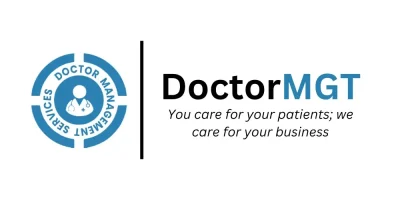What Is the Workers Comp Negotiation Process?

In many cases after a workplace injury, your employer’s workers compensation insurance will do whatever they can to pay as little as possible. Negotiating with the insurance–rather than accepting their first offer–is the best way to receive fair compensation for your injuries. Although you could negotiate with the insurance yourself, hiring a workers compensation expert will give you a higher chance of a successful negotiation.
Typically, workers compensation negotiations follow this process:
- With your approval, DMS sends a demand letter to the worker’s compensation insurance. The letter includes the amount you want to settle for.
- The insurance sends a counteroffer.
- Negotiations continue between DMS and the insurance company.
- Once both sides agree and negotiations are complete, the settlement goes to the State Board of Workers Compensation for review.
When Will Workers Comp Offer a Settlement?

Several factors can affect when workers compensation will offer a settlement for your injuries. If the extent of your injuries is clear, your employer’s workers comp insurance may send you an offer within a few days of filing your claim. Sometimes, the early offer is to convince you to accept less than your claim is worth.
In other cases, it may take the worker’s compensation insurance up to a year to send you an offer.
Why It Can Take So Long

If you’re still receiving medical care, this can be a major cause of a delayed offer. If you haven’t reached maximum medical improvement (MMI), the costs of your medical expenses are uncertain. Some insurance companies intentionally delay sending you an offer. They do this in the hopes that you will accept a low offer. When this tactic is used, it can significantly increase the amount of time it takes to negotiate your worker’s compensation settlement.
If the workers compensation insurance denies your claim, they won’t send an offer at all. This can happen when there is a dispute about whether or not workers comp should cover the expenses. When injuries are self-inflicted, caused by intoxication or horseplay, or sustained while committing a crime, workers comp insurance is not required to cover the claim. Additionally, when the insurance disputes the medical necessity of procedures, they may deny your claim.
By shaking hands with DMS, we can help you receive a fair settlement in your worker’s compensation claim. Workers comp officers understand the unfair tactics some insurance companies use to get out of paying. Whether helping you appeal a denial or negotiate a settlement, Doctor Management Services is your best chance to be fairly compensated.
Can I Get Disability after a Workers Comp Settlement?

Yes, in certain circumstances, you may be able to get disability benefits after receiving a workers compensation settlement. Settling your claim with a Stipulation and Award lets you continue collecting payments from the worker’s comp insurance. This type of settlement provides ongoing payments for your lost wages caused by the disability from your workplace injuries. In Utah, the amount of your disability benefits will typically be two-thirds of your previous weekly wages, plus $5 for your spouse and $5 per child.
In addition to your Stipulation and Award, you may also be eligible for Social Security Disability Insurance (SSDI) payments. The amount you receive for your SSDI can be affected by the settlement. If you receive more than 80 percent of your average current earnings, your SSDI payments will be offset.
Most workers comp settlements are settled with a Compromise and Release rather than a Stipulation and Award. A Compromise and Release is an agreement to accept a lump sum. Once the lump sum is received, the claim is closed, and you cannot receive further payments, including disability benefits. However, even if you cannot collect disability benefits from your employer’s workers comp insurance, you may still be eligible for SSDI payments. To collect SSDI, you must have a sufficient work history as well as a qualifying disability.
Does Surgery Increase a Workers Comp Settlement?

Yes. Having surgery on your injuries can increase the amount of your worker’s compensation settlement. However, depending on the type of surgery, the amount will vary. For minor surgeries, you might now notice much of a difference in your settlement. Major surgeries will increase your worker’s compensation collection settlement by much more.
Workers compensation settlements typically cover two areas: lost wages and medical benefits. Medical benefits cover the cost of doctor’s visits, surgeries, hospital stays, and rehabilitation, while lost wages cover the number of workdays missed. A major surgery that takes a long time to recover from will yield a higher workers compensation settlement.
How Long After a Workers Comp Settlement Do I Get Paid?

After a settlement has been negotiated, it has to be finalized before you get paid. The settlement is sent to the State Board of Workers Compensation (SBWC), where it will be reviewed by a hearing officer or judge. Once approved by the SBWC, your settlement is finalized and usually cannot be changed.
By law, the worker’s compensation insurance has thirty days after the SBWC approval to pay the settlement. If they are late, the insurance company has to pay certain fees and interest. To avoid paying added fees, most settlements are sent within a couple of weeks.
Get Your Workers Comp Settlement

At Doctor Management Services, we have years of experience negotiating with worker’s compensation insurance to get injured workers the compensation they deserve. Let us take on the insurance so you can focus on healing. Click the button below to schedule a free consultation.







